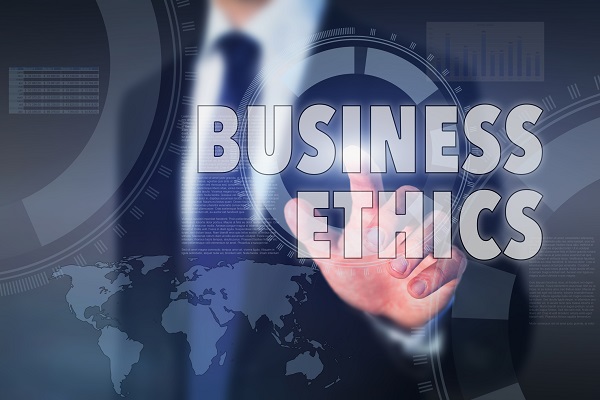The COVID-19 pandemic brought global socio-economic disruptions with searing consequences but it provided opportunities for good politics and good business. There have been interventions by various governments to mitigate its disruptive effect on the economies of countries. In Nigeria, the federal government just approved N2.3 trillion as a stimulus package to manage the challenges of C-19. This signifies hope and opportunities for businesses in the post-COVID-19 -era and was captured aptly in the theme of Business Network International (BNI) Alpha Chapter, Nigeria recent programme: “Growing Your Business In Post-Pandemic Era”
To remain in business at this difficult time, entrepreneurs or business owners must be smart, but most importantly play by the rules to maximize the opportunities of wealth creation provided by these times. Most people wonder why adhering to codes of ethics is important for business success.
No Morality In Business
After all, Chief Arthur Nzeribe is reputed to have posited that there is no morality in business. Is this true? Nzeribe’s position reinforces the Machiavellian principle which holds that ‘the end justifies the means” in business and this contradicts the codes of ethics, which promotes the philosophy that posits that “the end sanctifies the means.” While morality therefore stands as the compass for what is Right and Wrong; Ethics emphasizes Good and Bad.

Morality is driven by societal philosophy, religion, culture or a belief system with a universal appeal. It is safe therefore to say that a business can be good but how it is managed can be wrong.
What then is Ethics?
Ethics are the standards of good and bad distinguished by a certain community or social settings. Therefore, Codes of Ethics describes the highest values to which a company aspires to operate, which outlines the “ Thou shall nots”, specifying rules of operation.
Codes of Conducts
In relation to our topic, this guides the behavioral pattern of workers in work places. While some organizations could develop the same set of codes to serve varying peculiar needs, it is important to separate these two from the codes of ‘Business’ ethics which are the values and activities that guarantee sustainable management of an enterprise in a given location. These include:
- Registration: Did your business meet all the registration requirements to operate in the country or locality?
- Compliance And Regulation: What is the compliance level of your business with laws, regulatory guideline and protocols in the sectors of operations? Examples- MTN fined $5.2 billion for late simcard registration, Lagos Trade Fair concession agreement, Seven banks paid N145million to CBN,SEC,CAC, FRC for various offences in 2018, N2M per infraction fine on bank for arbitrary charges. Others- Closure of business premises, unwarranted litigation.
- Sustainability: Focuses on meeting the needs of the present without compromising the ability of future generations to meet their needs. The concept of sustainability, which today defines the future of businesses as captured by the UN SDGs, is composed of three pillars( economic, environmental, and social) also known as profits, planet and people. This is where most of the CSRs and philanthropic activities by corporate bodies and individuals under the Covid-19 pandemic found expression. So, to succeed in post- pandemic era a business must be mindful of its profits, how it affects the environment and how its touches lives and its gender composition ratio. Banks and many blue chip firms are now complying with the CBN rules on annual sustainability report. But beyond “Compliance’ the public perception of your brand in these areas can boost sales and confidence in the brand.
- Integrity as an Asset: Every short cut in business ends up being the longest pathway. It is said that ‘ The high road is always respected. Honesty and integrity are always rewarded” And Napoleon Hill, the business and life-improvement tactician, says,” When you are able to maintain your own highest standards of integrity –regardless of what others may do-you are destined for greatness.” You can build a robust company with image- what people perceive or think you are but you can only sustain it with integrity- what you are. There is no second chance for a first impression. Let every service of product of the company reinforce the value-trust ,truth, dependability, excellent service- captured as corporate philosophy.
Research has shown that most SMEs and start- ups are operating without registering their businesses. NAFDAC has shut down a lot of factories for operating without registration. In fact, not adhering to codes of ethics in business is a poor risk management factor. So the investment in compliance with the ethics may be substantial but the savings from it today ensures sustainability and huge profit in the long run.
 MMS PLUS NG – Maritime, Aviation, Business, Oil and Gas News Online Newspaper with coverage in Maritime, Oil and Gas, Aviation, Power and Energy as well as Financial News
MMS PLUS NG – Maritime, Aviation, Business, Oil and Gas News Online Newspaper with coverage in Maritime, Oil and Gas, Aviation, Power and Energy as well as Financial News










